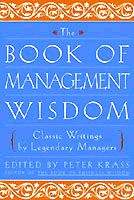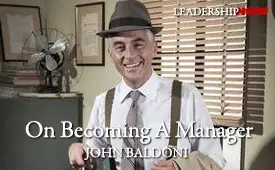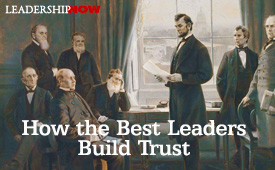
Personality in Business | Reading Room BY EDOUARD MULLER |
EDOUARD MULLER
During a 1937 reorganization, Edouard Muller was appointed president and chairman of Nestle, one of the largest food companies in the world. The enterprise had been founded in 1867 by Henri Nestle, who had developed a cow's milk food for infants, and who later launched a condensed milk product. So, while today Nestle is best known in the United States for its chocolate, an area the company entered in the early 1900s, it actually built itself upon milk products. After Muller went to work for Nestle, one of his first big assignments was, at age 26, to market its products in Turkey. To encourage the consumption of chocolate, one of his highly successful innovations was to work with cinema owners in a promotion in which chocolate candy bar wrappers could be used for admission. The year after the innovative Muller took the reins, the company launched Nescafe, the instant coffee, which was a result of eight years of research. Several years later Nestea, a powdered tea, hit the shelves. While successful products were introduced on his watch, Muller had the unfortunate task of guiding Nestle through World War II, which involved fending off the Nazis, and trying to manufacture products with limited or rationed resources. On the other hand, the conflict generated huge demand for powdered milk and Nescafe, which fueled revenues. Muller reflected, "These terrible years of war, with their manifold and far-reaching problems, have amply demonstrated the need for and the value of individual personality combined with wholehearted cooperation in many spheres." Indeed, Nestle expanded operations in South America, tripled its powdered milk production, and positioned itself to meet increased global demand once the war was over. Muller, who was characterized as an energetic globetrotter, described the qualities needed for management and managers in Personality in Business. He declared, "If a chief ever becomes afraid of encouraging his associates to be as good as, or better than himself, he is lost as a constructive force. His whole personality changes and, instead of thinking broadly and objectively, he tends to become egotistical, dictatorial and narrow-minded." Personality in Business
Edouard Muller I often think that one disadvantage of a large business—and in our own field I believe we can safely claim that distinction—is that the Chief tends more and more to lose personal contact with many of his associates. This is true even of large national companies and, in the case of an international concern such as ours, the gulf is widened by geography. I have always been a great believer in the value of close personal contact in our business, from top to bottom. This is the best way, indeed the only way, to get to know one's collaborators properly; to appreciate their true worth and to discover those with the necessary personality and initiative for encouragement and promotion. Every enterprise, great or small, is characterized by the personalities of those who direct it and participate in its affairs. Its development, progress and reputation are in their hands. Therefore, if I were asked what I consider to be the most important individual attribute in business, I think I should put Personality at the head of my list. The kind of personality which seeks to keep a business on a high level; the kind of personality which makes an executive exact the utmost from himself before he demands it of others and, by his own actions, sets an example for all his colleagues. We are inclined to forget occasionally that personalities in every organization can be, and are, judged from several viewpoints. The "Boss" has to judge those under him from his position as head of affairs. On the other hand, his collaborators may have quite a different perspective, especially where they themselves are concerned. Moreover, they usually have some very definite views about the Chief himself and others senior in rank. It behooves all executives therefore, in every capacity, to see to it that these judgments or opinions—provided they are unbiased—mainly reflect their own good qualities and, to that end, the example they set day by day is worth far more than an occasional lecture. Again, every business has very important relationships with people outside its own environment, sometimes as buyer, sometimes as seller. None of us can afford to ignore the impressions and judgments formed by these outside sources—indeed it is always interesting and frequently as illuminating to know them as it is to know the opinions of those within the organization. If I were asked what I consider to be the most important individual attribute in business, I think I should put Personality at the head of my list. By this I do not mean that we should depend too much on the views and opinions of others. Those who carry the responsibility must, in the end, make decisions according to the best of their own ability but they should not necessarily presume that these decisions cannot be improved. On the contrary, I think all of us should be happy and proud when we have assistants around us who have the courage of their own convictions, or to have clients who will express divergent views openly and without rancor. I am sure that most of us will be able to recall instances when such opinions or ideas, given without thought of personal prestige, have resulted in useful changes being made in some plan or program and how, by this means, new and valuable personalities have been uncovered. There are two sides to every business, the human and the material. In my experience the best achievement is possible only when both are interwoven into one harmonious whole. In a small company where the Chief and his managers and staff are in close daily contact, this objective is more easily attained than in a larger concern which must be split up into several parts. Nevertheless, this does not alter the fundamental role of the Chief. He still has to carry the ultimate responsibility for everything that happens in the business—good or bad—but he must adopt different methods to ensure maximum harmony and cooperation. First he must choose efficient deputies to whom he can delegate responsibility. This tends to limit his personal contact to his closest collaborators and, more and more, he must depend upon them to carry out the broader principles and policies without losing their individual initiative or creative ability. In our case, the problem is even more complex as the divisions or subdivisions are not only internal or departmental but external through associated companies, which themselves are frequently departmentalized. Under these circumstances it is essential that each department or section should be directed uniformly to some extent, so that each can work smoothly with the other wherever or whenever this becomes necessary. However, I feel this merely emphasizes the importance of personality as, if the wrong type of individual is chosen for a key position anywhere along the line, the effect can be harmful to the whole as well as to the part immediately concerned. A good Chief, whether he be head of a company, division, department or section should be master of his own job and always eager to widen his knowledge. He should strive to have the best possible assistants around him and be both able and willing to give them every help and encouragement to progress. If a Chief ever becomes afraid of encouraging his associates to be as good as, or better than himself, he is lost as a constructive force. His whole personality changes and, instead of thinking broadly and objectively, he tends to become egotistical, dictatorial and narrow-minded. Pleasure in work, in initiative and the acceptance of greater responsibility by others disappears and the development of their personality value is retarded if not halted entirely. There is nothing worse for any business, in my opinion, than the individual who can see no point of view except his own. Such personalities invariably suffer from a marked preoccupation with personal prestige. They cannot assimilate the ideas and knowledge of others; they lose contact with their associates and fail to take advantage of the initiative shown by others. I would ask every leader in our concern, and those who aspire to lead in the future, to avoid that mentality as one would the plague, since it leads only to trouble and we have enough of that commodity to handle without creating more of it ourselves. A good Chief, whether he be head of a company, division, department or section should be master of his own job and always eager to widen his knowledge. As I have said before, every enterprise is characterized by the personalities of those who direct its affairs. For good or ill they determine its prevailing tone and spirit and this applies equally to any part as well as to the whole. No Chief, in any capacity, should ever forget this and he should be ready always to accept responsibility for whatever goes on in his section, division or company. Where ideas or initiative are lacking, where little foresight is shown in planning ahead or in the provision of competent understudies to himself, the fault is his and be must be big enough to acknowledge it. It is really astonishing how many excuses some men can find when things go wrong just to avoid acknowledging that they have made a mistake. Any business in which this mentality prevails is in a sorry plight. We are all human and we all make mistakes sometimes. If the leading personality is strong enough to admit that and always act unselfishly, in the best interests of the group, his subordinates will be quick to recognize this trait and strive to emulate his example in their own spheres. It is hardly necessary for me to add that they will be just as quick to recognize the opposite and will be equally liable to react accordingly. Of course in a large business one must have good organization for, without this, cooperation is impossible. This brings me to a really significant point, as development of individual personality and organization are often mutually antagonistic. The one we are anxious to encourage but we cannot dispense with the other without causing confusion and disorder. There is nothing worse for any business, in my opinion, than the individual who can see no point of view except his own. Obviously no section or division of any business can operate quite independently, as in that way lies chaos. We must have certain plans, principles and general policies to which all subscribe if unified management is to be maintained and I am sure you will agree that can be assured only through the willing and thoughtful cooperation of all, chiefs and staff alike, whatever the position they hold or the type of work they do. In brief, through the fullest possible development of the human personalities on which the ultimate success or failure of these plans and policies depend. At the same time we should never regard organization as an end in itself, only a means to an end. Organization is a dead thing and without the vital spark of human initiative—which stems from personality—it can impede progress and may gradually stifle the creative spirit on which all progress depends. We must see to it therefore, all of us, that our own organization, while strong enough to maintain important fundamentals, is always kept flexible and never allowed to become so rigid that our collaborators function as automatons. Let us resolve to discard egoism, ideas of personal prestige and strive instead to cultivate the kind of personality which will breed mutual trust and appreciation. These terrible years of war, with their manifold and far-reaching problems, have amply demonstrated the need for and the value of individual personality combined with wholehearted cooperation in many spheres. Without attempting to prophesy I believe that many of our problems in the postwar years may be even greater than now, problems which will demand these same attributes as never before. I feel, therefore, that those who now carry the responsibilities—and here I am thinking principally of the senior executives—should concentrate even more than usual on developing eventual successors. As I see it, it is up to them to pass on the benefit of their wider experience of men and methods to the younger generation; to build soundly and wisely now and endeavor to bridge the current difficulties in such a way that, when the time comes, the newcomers can go forward confidently to new horizons. This is the season of goodwill and good resolutions. As a final message, therefore, I would say, let us all, irrespective of rank, resolve to work henceforth for the common good. Let us resolve to discard egoism, ideas of personal prestige and amour propre and strive instead to cultivate the kind of personality which will breed mutual trust and appreciation. I am sure that, with this as our goal, and if we all try hard enough, we can find sufficient talent within the ranks of our great Company to provide men and women of outstanding personality, initiative and ability, who will ensure its success in the future as others have done in the past. 1945 Source: The Book of Management Wisdom: Classic Writings by Legendary Managers, PART I: Essential Qualities of Great Managers. ©2000 Peter Krass (Editor) . All Rights Reserved. Used by permission. |
|
 
The Persistence of Vision MICHAEL MCKINNEY 
On Becoming A Manager JOHN BALDONI 
Communicating with Power: Putting Leadership on Parade KEVIN DALEY 
How the Best Leaders Build Trust STEPHEN M. R. COVEY 
The Men Behind the Guns of Business RICHARD W. SEARS 
The Focus of Leadership MICHAEL MCKINNEY 
Why Leaders Fail MARK SANBORN |
 |
| ||
 | © 2019 LeadershipNow All materials contained in https://www.LeadershipNow.com are protected by copyright and trademark laws and may not be used for any purpose whatsoever other than private, non-commercial viewing purposes. Derivative works and other unauthorized copying or use of stills, video footage, text or graphics is expressly prohibited. |
||